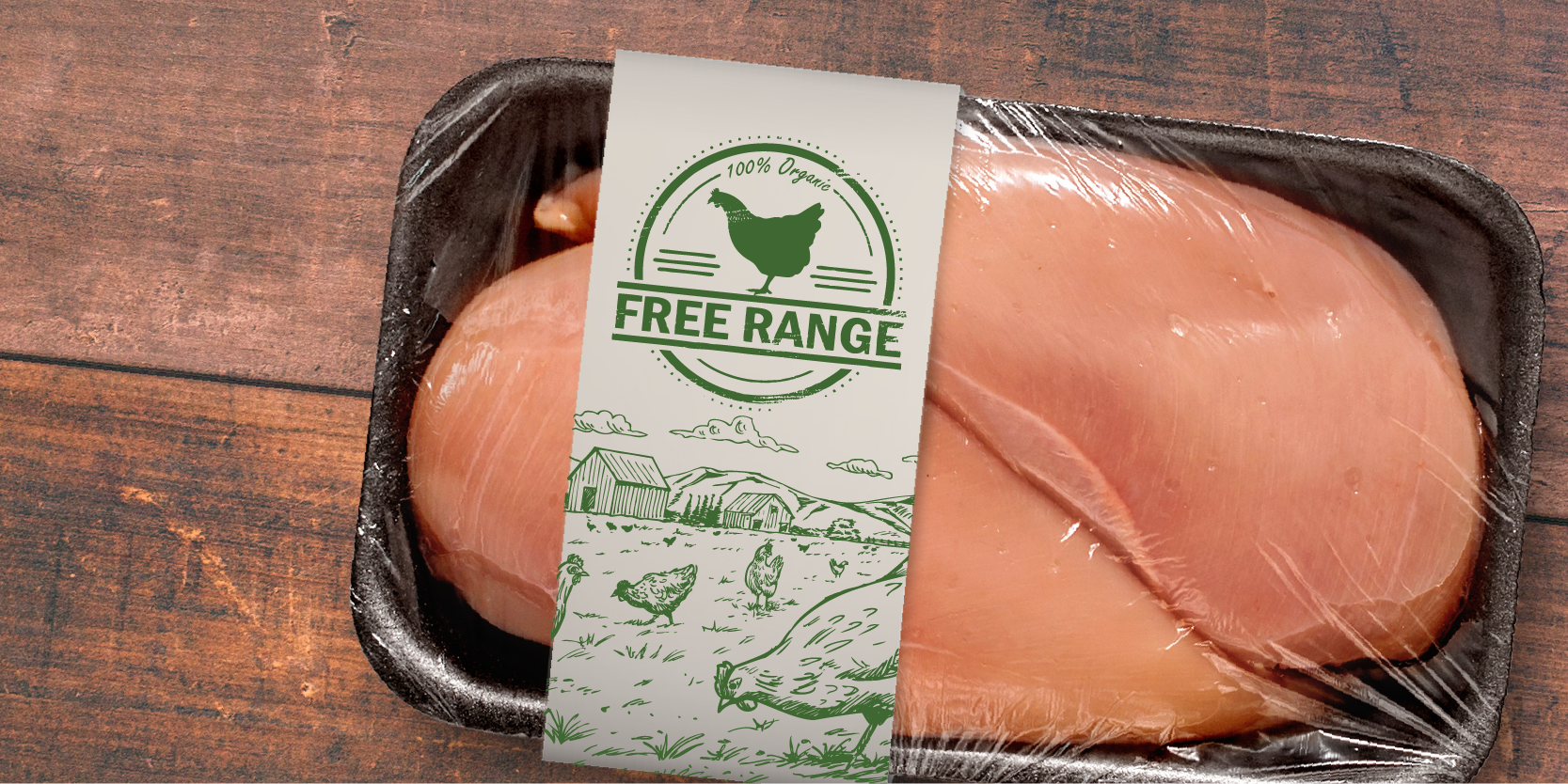
What’s the difference between “Free Range Organic” and “Pasture Raised” Chicken?
If you’re paying a premium for chicken that’s free range and organic, you may think you’re getting happy chickens raised outside on green grass. But did you know that loopholes in the meat labeling industry allow factory farms to use those labels while raising chickens in cement floored grow houses with lip service “access” to the outdoors?
Don’t trust labels, meet your farmers
We’ve been there. Dumping tons of money on “the best” chicken, only to find out it’s basically the same factory-farmed crap we were trying to avoid.
That’s why it’s so important to take the extra step and actually visit the farm where your food comes from. If the farm is not open to the public, or prefers fancy commercials and illustrations over actual footage of the animals, you might want to think twice. Check out this article from the Intercept regarding Mary’s Chicken.
In short, here are a few differences between our chicken and certified free range organic (such as Mary’s Chicken).
|
Primal Pastures Chicken (Pasture-Raised) |
“Free Range Organic” |
|
Outside 24/7 |
Grown indoors w/ ambiguous “access to the outdoors” |
|
Fresh air + sunshine |
Poor air quality + high ammonia levels |
|
Moved to fresh pasture everyday, manure acts as natural fertilizer to regenerate the land |
Major manure waste issues, groundwater contamination |
|
Species-appropriate diet: Bugs, worms, grass & seeds + supplemental Organic Soy-free GMO-free feed |
Vegetarian diet: non-GMO corn & non-GMO soy |
|
Environmentally regenerative |
Environmentally damaging |
|
Zero vaccines, zero drugs |
Given vaccines & drugs |
|
Slow-growing, heritage breed (11-13 weeks) |
Fast-growing breed (6 weeks) |
|
Active lifestyle, more dark meat (legs & thighs) |
Sedentary lifestyle (more breast meat, often unable to support weight) |
Inspect what you expect
We recommend that you “inspect what you expect.” So if you’re at the store, picking up a chicken breast in a nice green package that says “organic” you might expect that it comes from a lovely farm, where the chickens roam free on green grass. But is that really the case? Is the farm open to the public? How can you confirm that your expectations are in line with reality?
Over the years, we’ve learned a lot about the meat labeling industry, and been grossly disappointed. Here’s what we learned:
Free Range
Free Range means that chickens have "access to the outdoors." Sounds reasonable, right? Except that 99.99% of modern day conventional chicken is raised in what's called a “grow house,” a 600ft long x 40ft wide tunnel packed with 30,000-40,000 chickens. You've seen the photos.
This is no different for "free range" operations. All the company has to do to qualify for this label is cut a door at the end of the grow house that gives the chicken "access" to go outside for more than 2 hours per day. Do you think even 10% of those birds would venture outside to a 10'x10' concrete pad? Not a chance.
And it gets worse. These birds still need to be debeaked because cannibalism runs rampant in these confinement operations. Antibiotics are used heavily (even if they are 'antibiotic-free'), and a whole host of animal welfare issues are still prevalent.
Organic
The “organic” label just means that the chickens have been fed a certified organic feed. It doesn’t guarantee anything about the chickens’ quality of life.
They are never able to forage for bugs or grasses (part of their species-appropriate diet) but rather are only offered a grain based feed to fatten them up as quickly as possible. As a result, their legs are often unable to support their body weight and break under the strain of the extreme load. They’re often injected with antibiotics that sturdy up the legs and allow them to survive to six weeks. At this point, they’re processed for production, wrapped in plastic, sold to you at the grocery store, and fed to your families.
Pasture Raised
Labels can be tricky. Even the term “pasture-raised” (often thought of as the final word when it comes to completely natural, beyond organic meat & one of the ways we describe how we raise our meat at Primal Pastures), doesn’t always mean what you think it does.
Because there’s no legal definition of the term, pretty much anyone can claim to produce “pasture-raised” meat and suffer no consequences for misinformation.

Forget scary conventional chicken, the above picture could be sold as “Organic Free Range Chicken.” Just cut a door at the end of the building, dump in some certified organic feed, and hike up the price. Is that what you expected?
|
CHEAT SHEET |
|
Conventional Chicken = grow houses, antibiotics & vaccines, gmo/soy feed Organic Chicken = grow houses, antibiotics & vaccines, organic feed Free Range Chicken = grow houses with a door, antibiotics & vaccines, any feed Pasture Raised = no legal definition (unregulated living conditions, may include antibiotics, vaccines, gmo/soy feed) Primal Pastures Chicken = 24/7 outside, NO antibiotics, NO vaccines, foraging for bugs, grubs, seeds & worms + supplemental organic, no-gmo/no-soy feed |
This is a lot of bad news, especially if you’re where we were - trying to do the best for your family and paying a premium for something that doesn’t measure up to your expectations.
But rather than bug out or give up, we see hope. Hope in good people, local agriculture, and restoring the sacred relationship between consumer and farmer.
If you’re in or near So Cal, come visit us at one of our monthly public tours, or schedule a private group tour. If you can’t make it out to the farm, check out this video, where Farmer Paul shares how we do things here and gives a virtual tour.
You can also check out EatWild.com to find and meet local farmers near you.

